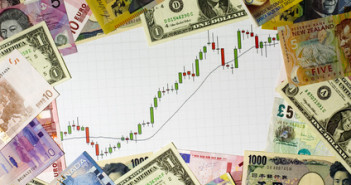Last week I took on SmartMoney. This week I take on the Prism Money personal finance blog, which is hosted by none other than Reuters, my own employer (it’s a really big company, though, so no, I do not know the author and/or editors responsible). The post in question is Forex folly: Why you shouldn’t be trading currencies.
Guest post by John Forman
Scam Everywhere!
The wonderful part of this particular article is how the author basically paints the whole industry as a big scam. I’ve addressed the forex scam subject before, and no doubt it will come up again. Any time you have a situation where the majority of folks are bound to end up disappointed with their performance there are going to be claims of malfeasance.
Now, this is not to say there aren’t those who would seek to take advantage of the popularity of forex. That shouldn’t be a reason to avoid a market, however. If that were the case you’d have to rule out all the other markets too because there most definitely have been all kinds of bucket shops,boiler rooms, and other scams involving stocks, commodities, and everything else.
As with any situation where you’re putting your hard-earned money in someone else’s hands, you definitely want to do your due diligence ahead of time to avoid the predators. The blog post author makes some excellent recommendations where looking for CFTC/NFA registration, complaints, etc. are concerned. That is always a good idea. Be cautious about listening to posters on forum and chat sites, though. Very often the folks complaining about this or that company, group, etc. are looking to shift blame from their own failures.
Not for the average investor
Shifting to the question of whether forex is something folks should avoid or not from a more markets oriented point of view, this blog is another instance where trading and investing are being intermixed. Trading as most of us would define the term is in general terms not something most “investors” should look to do for any number of reasons. It doesn’t matter whether you’re talking about stocks, bonds, commodities, or currencies. Most investors just are not good candidates for trading. Please let’s not conflate the two different approaches to the markets.
Is trading forex any different than trading any other market?
Getting beyond the investing question, the blog author brings up some items which he thinks argue against forex trading. One is that the forex market is dominated by big banks and institutions. This is totally true. The big institutions are responsible for the vast majority of trading volume. As I recently wrote, however, the big players are not able to manipulate the forex market to their liking.
Then there’s the suggestion that the big players are in the game because it’s volatile, turns quickly, and isn’t predictable. If the large shops are in there looking to make money taking positions in currency exchange rates they clearly think there’s at least some predictability to it all. They’re not just flipping a coin.
===========
Be sure to read the full risk disclosure before trading Forex. Please note that Forex trading involves significant risk of loss. It is not suitable for all investors and you should make sure you understand the risks involved before trading. Performance, strategies and charts shown are not necessarily predictive of any particular result. And, as always, past performance is no indication of future results. Investor returns may vary from Trade Leader returns based on slippage, fees, broker spreads, volatility or other market conditions.
===========
John Forman is a senior foreign exchange analyst for the IFR Markets group of Thomson Reuters and author of “The Essentials of Trading.” John is a 20+ year veteran of the financial markets. He holds an MBA from the University of Maryland and a BS from the University of Rhode Island, both concentrating in finance.
